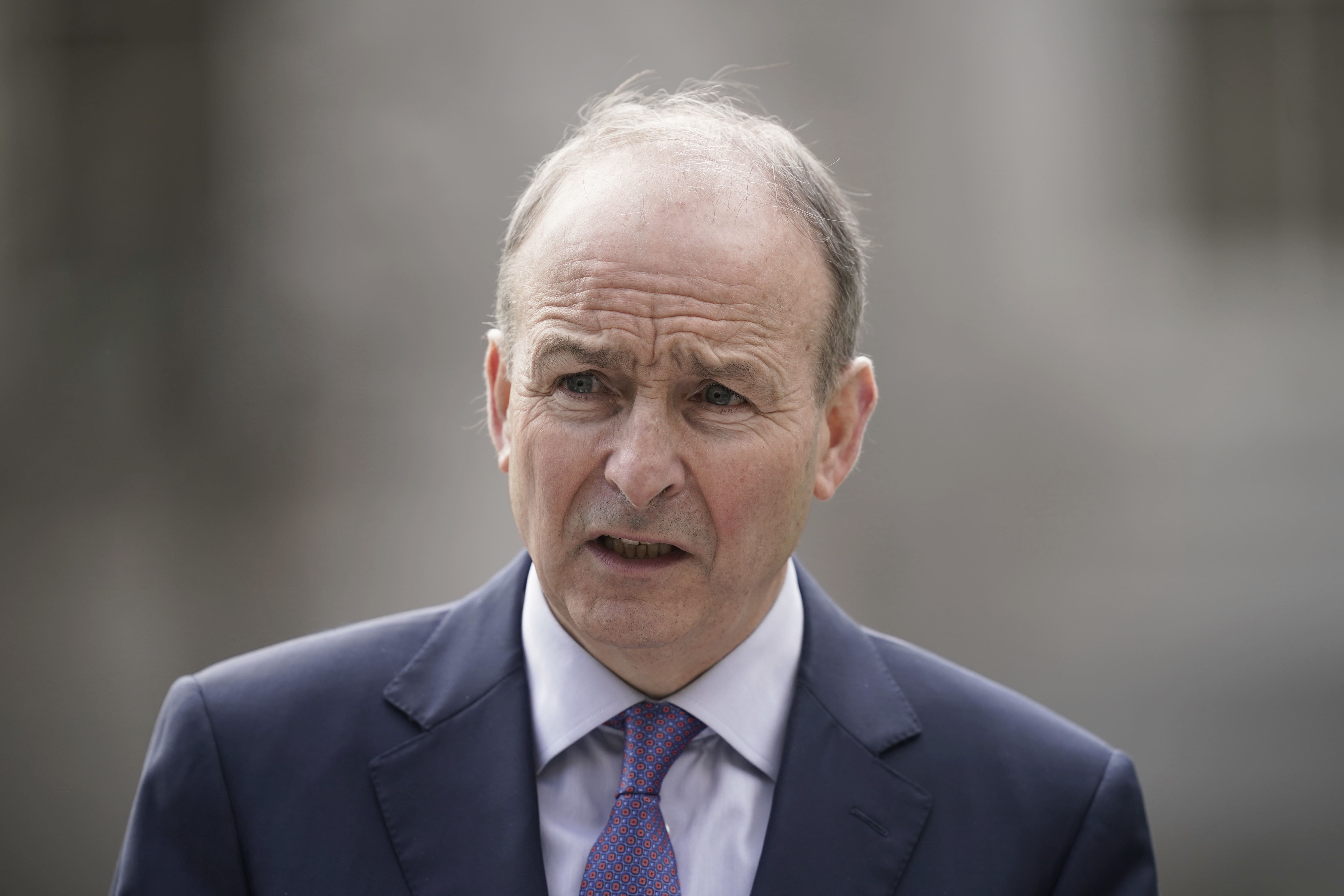Tanaiste pledges to release all Government files on Dublin and Monaghan bombings
The bombings on May 17 1974 remain the greatest loss of life on any single day of the Troubles.

The Tanaiste has said that all Government held files in connection to the Dublin and Monaghan bombings should be released to inquiries, as he paid tribute to those who died in the blast on the 50th anniversary.
He made the pledge as Ireland’s Justice Minister said the anniversary of the atrocity on Friday brought a new determination to find out what happened on May 17 1974.
On that date three no-warning bombs went off across Dublin city centre and one exploded in Monaghan town.
No-one has ever been convicted over the bombings but the loyalist Ulster Volunteer Force (UVF) admitted responsibility in 1993.
Mr Martin said on Friday: “I’ve a general view, that any files we have in Dublin, or within the Department of Justice or in An Garda Siochana should be released to all inquiries in respect of atrocities in Northern Ireland.
“Today is a very poignant day and the Justice for the Forgotten group has been extraordinary in their efforts they have made to focus attention many decades on, on what was the worst atrocity, in what was a terrible time in Ireland when there was murder and mayhem across the land.
“Earlier Governments from the 1990s on, we had two inquiries and both those inquires made it very clear that they didn’t get full cooperation, particularly from the British state.”
The Tanaiste told RTE’s Morning Ireland radio programme that the British Government’s controversial Legacy Act has created a “huge challenge” for legacy issues.
“It has resulted in something we thought we’d never be doing now, referring British legislative act in terms of legacy to the European Court Convention (on Human Rights) in respect of non-compliance,” he added.
An official memorial in Dublin honours the 35 victims of the bombings, which included two unborn babies.
It remains the greatest loss of life on any single day of the Troubles.
Mr Martin and PSNI chief constable Jon Boutcher attended a memorial mass at at St Mary’s Pro-Cathedral in Dublin on Friday morning.
Leading the service, Archbishop Dermot Farrell read out the names of those killed in the bombings.
Calling for reconciliation, he added: “Pray that those with the power to be able to deliver that justice, which will ultimately bring peace, will come quickly so that all may be fully healed of that awful atrocity and tragedy.”
The service will be followed by a commemoration event at the Talbot Street memorial where President Michael D Higgins will deliver an address.
Ireland’s premier Simon Harris and deputy premier Mr Martin will also attend the event, which has been organised by the Justice for the Forgotten group which represents bereaved families and survivors.
Mr Higgins will also lay a wreath in Monaghan on Friday evening. Minister Heather Humphreys will represent the Government.
Earlier Justice Minister Helen McEntee said that the families of victims of the bombings remain firm in their quest for justice 50 years on.
The scale of the attack was without compare, it is the greatest loss of life on a single day of the Troubles
Ms McEntee said it was a day to “remember and reflect”.
She added: “Fifty years have passed since that dreadful day on the streets of Dublin city centre and Monaghan town.
“It is as incomprehensible today, as it was all those decades ago, to think that bombs could be planted so callously, with no regard for human life.
“Three bombs exploded in Dublin city centre and a fourth in Monaghan town.
“The scale of the attack was without compare, it is the greatest loss of life on a single day of the Troubles.
“Such a large scale tragic and unjustified loss of life continues to effect countless families.
“Despite the passage of time, they continue to feel the loss of their loved ones deeply.”
The minister said the families’ loss had been compounded “by the frustration and hurt of unanswered questions”.
Ms McEntee added: “The survivors and the families of the victims remain firm in their quest for justice and for information about what happened to their loved ones.
“The Government is fully committed to seeking out the truth behind those events and, hopefully, to secure some measure of comfort for the victims’ families and the survivors.
“This landmark anniversary brings with it a new focus and desire to establish the truth of what happened on May 17 1974.
“The Government for our part, will continue to pursue all possible avenues to uncover the truth of what happened on this day in 1974.”
Today, we honour the memories of those who died, the more than 300 people injured, and the bereaved, both those living and those who have died in the years since
Taoiseach Mr Harris said: “Today, 50 years on from that dark day, I remember all those who lost their lives and were injured, and think of their families.
“I know their hurt has been compounded by a lack of truth and of justice for the victims since, and of immediate support for the families in the difficult years that followed.
“Today, we honour the memories of those who died, the more than 300 people injured, and the bereaved, both those living and those who have died in the years since.
“Today, Dublin and Monaghan remember.”
Earlier, Mr Martin said the Dublin and Monaghan tragedies live on in families in Ireland and abroad.
He said: “The loss and suffering of families was magnified by inadequate investigation at that time.
“The Barron and MacEntee inquiries answered some questions and raised some more, including the possibility of collusion.
“I have been following up with the Secretary of State for Northern Ireland (Chris Heaton-Harris) on the provision of sensitive material which may help answer some of those questions.”
Bookmark popover
Removed from bookmarks